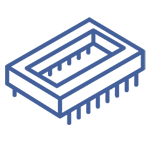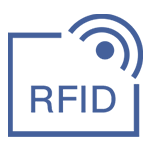

Broadcom Limited ASMT-UWB2-NX3E2
Manufacturer No:
ASMT-UWB2-NX3E2
Tiny WHSLManufacturer:
Utmel No:
354-ASMT-UWB2-NX3E2
Package:
2-PLCC
Datasheet:
Description:
AVAGO TECHNOLOGIES ASMT-UWB2-NX3E2 High Brightness LED
Quantity:
Unit Price: $0.269399
Ext Price: $0.27
Delivery:





Payment:











In Stock : 6
Minimum: 1 Multiples: 1
Qty
Unit Price
Ext Price
1
$0.269399
$0.27
10
$0.254150
$2.54
100
$0.239764
$23.98
500
$0.226192
$113.10
1000
$0.213389
$213.39
Want a lower wholesale price? Please send RFQ, we will respond immediately.
RFQ Now
Add to RFQ list
You may place an order without registering to Utmel.
We strongly suggest you sign in before purchasing as you can track your order in real time.
For your convenience, we accept multiple payment methods in USD, including PayPal, Credit Card, and wire transfer.
RFQ (Request for Quotations)It is recommended to request for quotations to get the latest prices and inventories about the part.
Our sales will reply to your request by email within 24 hours.
1. You'll receive an order information email in your inbox. (Please remember to check the spam folder if you didn't hear from us).
2. Since inventories and prices may fluctuate to some extent, the sales manager is going to reconfirm the order and let you know if there are any updates.
- TypeParameter
- Factory Lead Time14 Weeks
- Mounting Type
The "Mounting Type" in electronic components refers to the method used to attach or connect a component to a circuit board or other substrate, such as through-hole, surface-mount, or panel mount.
Surface Mount - Package / Case
refers to the protective housing that encases an electronic component, providing mechanical support, electrical connections, and thermal management.
2-PLCC - Number of Pins2
- Supplier Device Package
The parameter "Supplier Device Package" in electronic components refers to the physical packaging or housing of the component as provided by the supplier. It specifies the form factor, dimensions, and layout of the component, which are crucial for compatibility and integration into electronic circuits and systems. The supplier device package information typically includes details such as the package type (e.g., DIP, SOP, QFN), number of pins, pitch, and overall size, allowing engineers and designers to select the appropriate component for their specific application requirements. Understanding the supplier device package is essential for proper component selection, placement, and soldering during the manufacturing process to ensure optimal performance and reliability of the electronic system.
2-PLCC - Wavelength-dominant4500K
- Packaging
Semiconductor package is a carrier / shell used to contain and cover one or more semiconductor components or integrated circuits. The material of the shell can be metal, plastic, glass or ceramic.
Tape & Reel (TR) - Series
In electronic components, the "Series" refers to a group of products that share similar characteristics, designs, or functionalities, often produced by the same manufacturer. These components within a series typically have common specifications but may vary in terms of voltage, power, or packaging to meet different application needs. The series name helps identify and differentiate between various product lines within a manufacturer's catalog.
ASMT-UWB2 - Published2013
- Size / Dimension
In electronic components, the parameter "Size / Dimension" refers to the physical dimensions of the component, such as its length, width, and height. These dimensions are crucial for determining how the component will fit into a circuit or system, as well as for ensuring compatibility with other components and the overall design requirements. The size of a component can also impact its performance characteristics, thermal properties, and overall functionality within a given application. Engineers and designers must carefully consider the size and dimensions of electronic components to ensure proper integration and functionality within their designs.
3.20mm Lx2.80mm W - Part Status
Parts can have many statuses as they progress through the configuration, analysis, review, and approval stages.
Active - Max Operating Temperature
The Maximum Operating Temperature is the maximum body temperature at which the thermistor is designed to operate for extended periods of time with acceptable stability of its electrical characteristics.
85°C - Min Operating Temperature
The "Min Operating Temperature" parameter in electronic components refers to the lowest temperature at which the component is designed to operate effectively and reliably. This parameter is crucial for ensuring the proper functioning and longevity of the component, as operating below this temperature may lead to performance issues or even damage. Manufacturers specify the minimum operating temperature to provide guidance to users on the environmental conditions in which the component can safely operate. It is important to adhere to this parameter to prevent malfunctions and ensure the overall reliability of the electronic system.
-40°C - ColorWhite, Neutral
- Max Power Dissipation
The maximum power that the MOSFET can dissipate continuously under the specified thermal conditions.
108mW - Configuration
The parameter "Configuration" in electronic components refers to the specific arrangement or setup of the components within a circuit or system. It encompasses how individual elements are interconnected and their physical layout. Configuration can affect the functionality, performance, and efficiency of the electronic system, and may influence factors such as signal flow, impedance, and power distribution. Understanding the configuration is essential for design, troubleshooting, and optimizing electronic devices.
Standard - Voltage - Forward (Vf) (Typ)
The parameter "Voltage - Forward (Vf) (Typ)" in electronic components refers to the typical forward voltage drop across the component when it is conducting current in the forward direction. It is a crucial characteristic of components like diodes and LEDs, indicating the minimum voltage required for the component to start conducting current. The forward voltage drop is typically specified as a typical value because it can vary slightly based on factors such as temperature and manufacturing tolerances. Designers use this parameter to ensure that the component operates within its specified voltage range and to calculate power dissipation in the component.
3.2V - Viewing Angle
the angle at which a display can be viewed with acceptable visual performance.
120° - Forward Current
Current which flows upon application of forward voltage.
30mA - Current - Test
Current - Test is a parameter in electronic components that refers to the maximum current that the component can handle during testing without being damaged. This parameter is crucial for determining the operational limits of the component and ensuring its reliability under specified conditions. It is typically specified in the component's datasheet and is important for designers and engineers to consider when designing circuits to prevent overloading the component. Testing the component at or below the specified "Current - Test" value helps ensure its proper functioning and longevity in the intended application.
20mA - Lens Style
In the context of electronic components, the parameter "Lens Style" typically refers to the design or shape of the lens used in optical components such as LEDs, photodiodes, or sensors. The lens style can affect the light output, beam angle, and overall performance of the component. Common lens styles include flat top, dome, narrow beam, wide beam, and diffused lenses. Choosing the appropriate lens style is important for achieving the desired light distribution and optical characteristics in electronic devices. Manufacturers often provide specifications on the lens style to help users select the most suitable component for their application.
Round with Flat Top - Luminous Flux
the measure of the perceived power of light.
2.7 lm - Height (Max)
Height (Max) in electronic components refers to the maximum vertical dimension of a component that can be accommodated in a particular space or within a system. This parameter is critical for ensuring that components fit within designated enclosures, circuit boards, or assemblies without interference. It provides manufacturers and designers with essential information for proper layout and cooling considerations, influencing both mechanical and thermal management in electronic designs.
2.10mm - REACH SVHC
The parameter "REACH SVHC" in electronic components refers to the compliance with the Registration, Evaluation, Authorization, and Restriction of Chemicals (REACH) regulation regarding Substances of Very High Concern (SVHC). SVHCs are substances that may have serious effects on human health or the environment, and their use is regulated under REACH to ensure their safe handling and minimize their impact.Manufacturers of electronic components need to declare if their products contain any SVHCs above a certain threshold concentration and provide information on the safe use of these substances. This information allows customers to make informed decisions about the potential risks associated with using the components and take appropriate measures to mitigate any hazards.Ensuring compliance with REACH SVHC requirements is essential for electronics manufacturers to meet regulatory standards, protect human health and the environment, and maintain transparency in their supply chain. It also demonstrates a commitment to sustainability and responsible manufacturing practices in the electronics industry.
No SVHC - RoHS Status
RoHS means “Restriction of Certain Hazardous Substances” in the “Hazardous Substances Directive” in electrical and electronic equipment.
ROHS3 Compliant




















